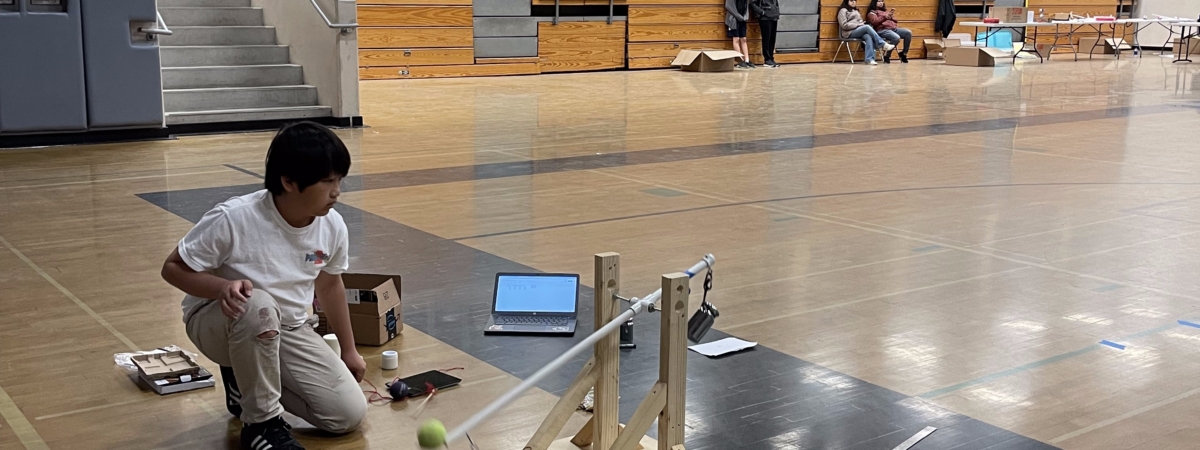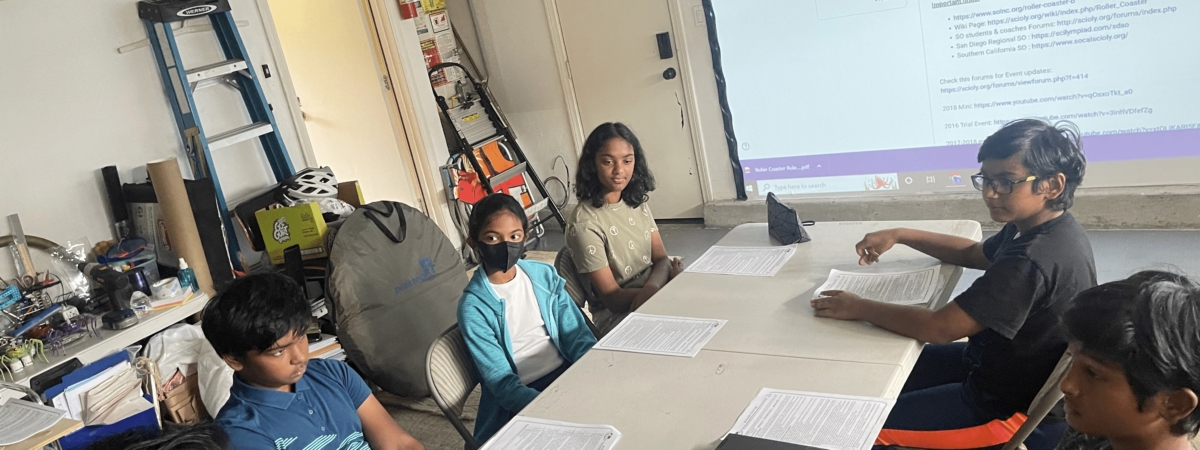Events for 2023−2024
Participants will be assessed on their understanding of the anatomy and physiology for the human Respiratory, Digestive, and Immune systems.
Disease Detectives
Students will use their investigative skills in the scientific study of disease, injury, health, and disability in populations or groups of people.
Ecology [NEW]
Participants will answer questions involving content knowledge and process skills in the area of ecology and adaptations in featured North American biomes.
Forestry
Participants will be assessed on their knowledge of trees found in the United States that are on the Official Science Olympiad National Tree List.
Microbe Mission [NEW]
Teams will answer questions, solve problems and analyze data pertaining to microbes.
EARTH & SPACE SCIENCE
Dynamic Planet [NEW TOPIC]
Teams will use process skills to complete tasks related to Earth’s crust.
Fossils [NEW]
Teams will identify and classify fossils and demonstrate their knowledge of ancient life.
Meteorology [NEW TOPIC]
Participants will use scientific process skills involving qualitative and quantitative analyses to demonstrate an understanding of the factors that contribute, cause and influence Severe Weather and Storms.
Reach for the Stars [NEW]
Participants will demonstrate an understanding of the formation and early-stage evolution of stars and their observation across the electromagnetic spectrum.
Road Scholar
Teams will answer interpretive questions that may use one or more state highway maps, USGS topographic maps, Internet-generated maps, a road atlas or satellite/aerial images.
PHYSICAL SCIENCE & CHEMISTRY
Physics
Air Trajectory [NEW] [BUILD]
Prior to the competition, teams will design, construct, and calibrate a single device capable of launching projectiles onto a target and collect data regarding device parameters and performance.
Optics [NEW]
Teams must participate in an activity involving positioning mirrors to direct a laser beam towards a target and are tested on their knowledge of geometric and physical optics.
Wind Power [NEW] [BUILD]
Teams construct a blade assembly device prior to the tournament that is designed to capture wind power and complete a written test on the principles of alternative energy.
Chemistry
Can't Judge a Powder
Students will test and characterize one pure substance and then, based only on data they collect, answer a series of questions about that substance. Students will not be asked to identify the substance. Emphasis of this event is on the quality of data collected, answering questions about the substance and providing data to support their answers.
Crime Busters
Given a scenario, a collection of evidence, and possible suspects, students will perform a series of tests that, along with other evidence, will be used to solve a crime.
TECHNOLOGY & ENGINEERING
Flight [BUILD]
Prior to the competition, teams design, construct and test free flight rubber-powered aircraft to achieve maximum time aloft.
Roller Coaster [BUILD]
Prior to the competition, teams design, build, and test a Roller Coaster track to guide a ball/sphere that uses gravitational potential energy as its sole means of propulsion to travel as close as possible to a Target Time.
Tower [NEW] [BUILD]
Teams will design and build a Tower (Structure) meeting requirements specified in these rules to achieve the highest structural efficiency.
Wheeled Vehicle [BUILD]
Prior to the competition, teams must design, build, and test one Vehicle that uses a non-metallic, elastic material as its sole means of propulsion to travel a distance as quickly and accurately as possible.
INQUIRY & NATURE OF SCIENCE
Codebusters
Teams will cryptanalyze (decode) encrypted messages using cryptanalysis techniques and show skill with advanced ciphers by encrypting or decrypting a message.
Experimental Design
This event will determine a participant's ability on-site to design, conduct and report the findings of an experiment.
Fast Facts
Teams will fill in a grid of terms that begin with a given letter to match given science categories. (For example, teams might need to write the names of a Scientist, an Element, a Unit of Measurement, and a Part of a Cell for the letters A, B, C, D, and E.)
Write it Do It
One student will write a description of an object and how to build it, and then the other student will attempt to construct the object from this description.

















